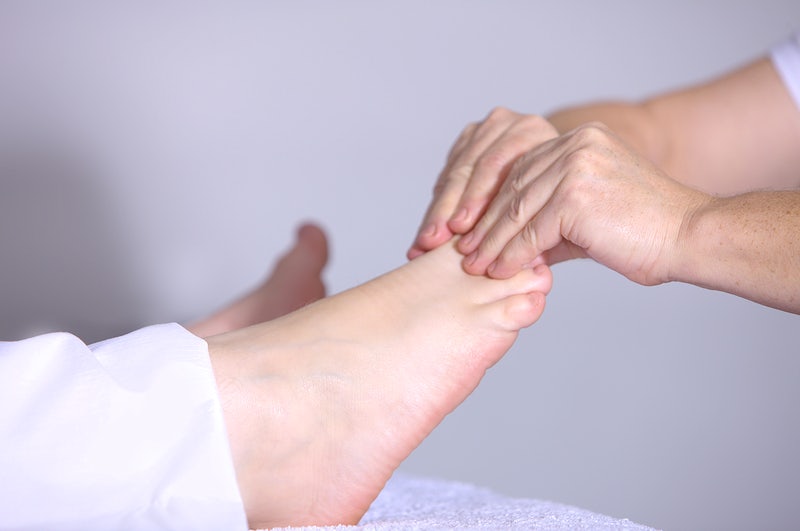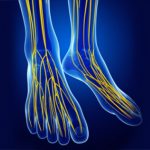Few people know it, but emotions have a huge influence on our body pains. Although the sciatica has several physical causes, it is possible that an angry state can contribute to the symptoms and slow the healing of the condition.
In what anger and sciatica are they related? Can we do something to control our emotions and thereby reduce our pain? We talk about it in this article.
Sciatica, short recall
La sciatica is defined as neuralgia, or nerve pain, of the nerve sciatica. This nerve is the largest and longest in the human body. It extends from the lower back to the feet and is responsible for both the sensitivity of part of the leg and some of its movements.
La sciatica can occur when this nerve is pinched or irritated, usually as a result of a herniated disc in the spine. This can cause pain and numbness in the legs and lower back.
In severe cases, it can also cause weakness in the legs.
The symptoms of sciatica
The first symptom of sciatica is pain that radiates from the lower back or buttock down the leg. The sciatica is initiated by compression of the nerf sciatica, which starts from the lower back, goes through the buttocks and down the leg.
The pain is usually worse when sitting or standing for long periods.
La sciatica may also be accompanied by neurological symptoms, such as numbness, tingling, or a feeling of electric shock in the leg.
What are the causes of sciatica ?
There are several possible causes of pain sciatica. Most often, we imagine physical causes. The most common causes are herniated disc, zygapophyseal osteoarthritis or narrowing of the lumbar canal (narrow lumbar canal).
Another possible cause is a fall or other accident that results in a shock to the back. This can damage the nerve directly or lead to other conditions that lead to nerve compression.
What about psychological causes?
Finally, one of the lesser known causes of sciatica is psychological in nature. It can be caused by stress, anxiety or even anger. When a person is faced with a significant psychological upheaval, the muscles in their back can contract.
This tension can then exert pressure on the sciatic nerve, which starts from the lower back and goes down along the legs. In some cases, the muscle tension can be so strong that it compresses the nerve, causing inflammation and pain.
Although this cause may seem unlikely, the sciatica caused by anger is a possibility not to be underestimated.
The link between anger and sciatica explained
Anger is an intense emotion that can have detrimental effects on our physical and mental health. When it comes to sciatica, anger can contribute to aggravating existing problems in several ways.
First, anger often causes increased muscle tension in the body. When we are angry, our muscles contract and stiffen, which can put extra pressure on the spine and the sciatic nerve. This increased muscle tension can make sciatica symptoms worse, causing increased pain and discomfort.
Second, anger can impact our pain threshold. When we are angry, our perception of pain can be heightened, making the symptoms of sciatica more difficult to bear. Additionally, anger can also increase our emotional sensitivity, which can make sciatica symptoms more emotionally difficult to manage.
It is important to note that anger can also influence our lifestyle habits and behaviors, which can indirectly worsen sciatica problems. For example, when we are angry, we may be inclined to adopt postures and movements that put more pressure on the spine and the sciatic nerve.
In addition, anger can also lead to unhealthy behaviors such as sedentary lifestyle, excessive consumption of unhealthy foods or neglect of physical activity, which can negatively impact our health and worsen the symptoms of anger. sciatica.
What can you do to control your anger and relieve your sciatica?
Now that you recognize the connection between anger and sciatica, hopefully it gives you more motivation in your work to master your negative emotions.
Obviously, the ideal would be to consult a mental health professional. He will be able to adapt his treatment and offer you personalized advice.
Here are techniques you can try at home to manage your stress and reduce your feelings of anger:
Sport
It's no secret that sport plays a natural antidepressant role. Certain exercises will notably strengthen the trunk and reduce the symptoms of sciatica. An activation of the circulation and an oxygenation of the body will also make it possible to feel better mentally.
Psychotherapy
This treatment helps to cope with stress and anger. It is a therapy set up by a psychologist. The latter will carry out a follow-up and a personalized accompaniment of the person. Indeed, it helps to get to the heart of the problem and solve it quickly.
Medication
In some cases, unfortunately, you have to resort to taking medication. There is no specific medicine to treat stress and anger. However, antidepressants remain effective. On the other hand, taking these drugs requires prior prescription by a doctor because of their high intensities.
The traditional treatment
Traditional remedies hold the power to eradicate stress and control anger. There are several methods:
- Diaphragmatic breathing
- Meditation mindfulness (sometimes called " Mindfulness ")
- homeopathy: a natural herbal treatment to reduce depression;
- Acupuncture: a Chinese method that helps to relax the muscles. Indeed, it can possibly reduce blood pressure;
- Sauna and steam room: a steam bath to relax the nerves.







